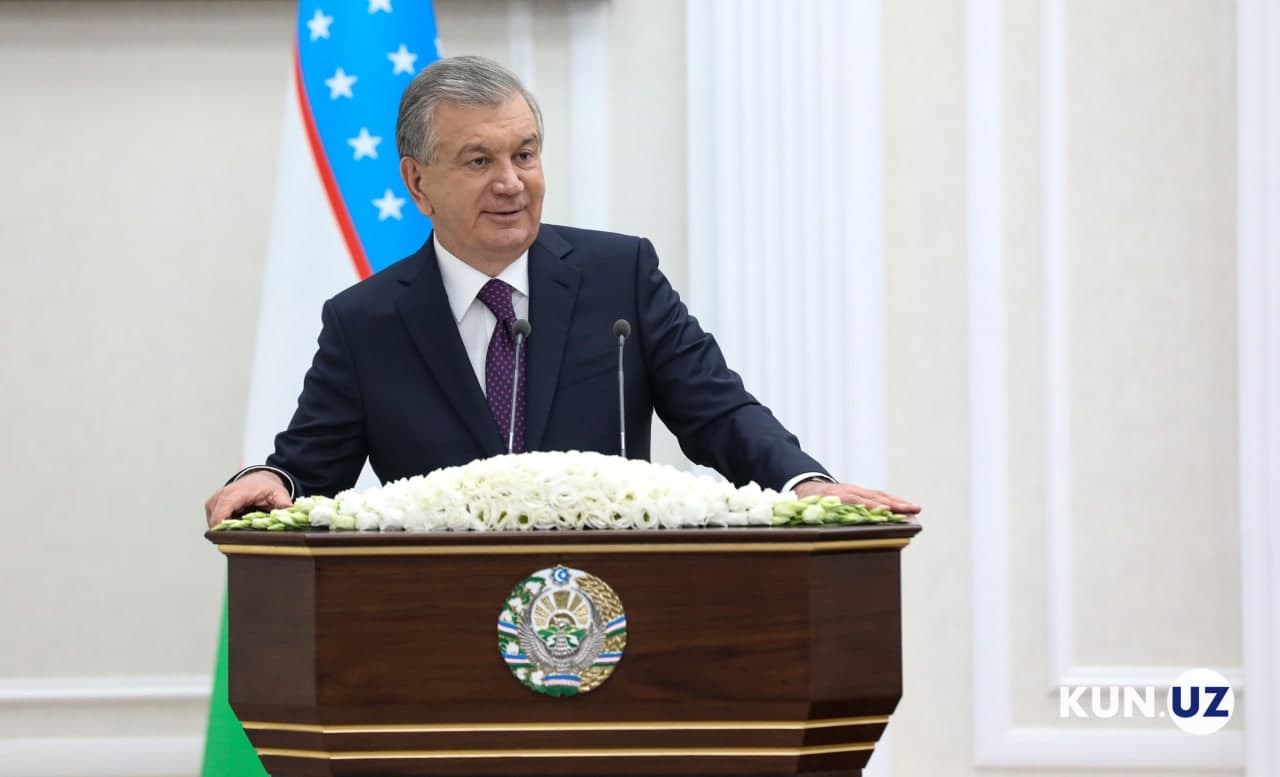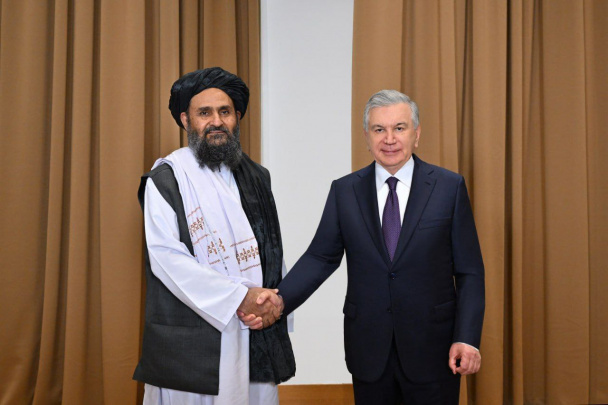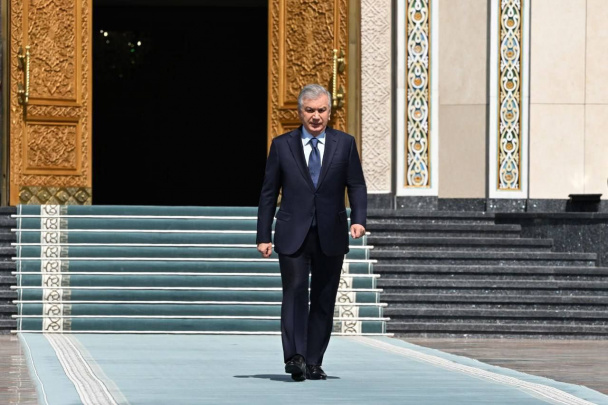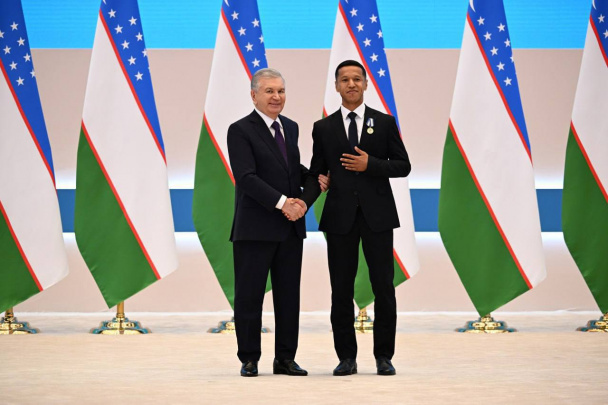“Shavkat Mirziyoyev is more interested in relations with international financial markets and improving public administration” – Suma Chakrabarti
The Financial Times published a special report on modern Uzbekistan. The 11-article report covers economic growth, privatization, access to international markets, green energy, the digital economy, human rights, regional international relations and population.

Фото: KUN.UZ
The presence of foreigners with a clear influence at the highest levels of government is a rare occurrence in Central Asia. Suma Chakrabarti, who was appointed adviser to the President of Uzbekistan on economic development, good governance and international cooperation in September last year, is one of such people. He is also tasked with attracting international investors, financiers and corporations to Tashkent.
In its article, the Financial Times quoted the expert on his work in Tashkent and the changes taking place in the country.
Suma Chakrabarti himself explained this decision as follows:
“I agree that my appointment is extraordinary. I think it’s because the Uzbek government, after a quarter of a century of relative isolation, understands the need for someone with international experience and who is involved in “quality assurance” of new administrative reforms,” he said.
As a former head of the EBRD, the specialist first met with Shavkat Mirziyoyev in early 2017.
Suma Chakrabarti served as EBRD President from July 2012 to July 2020. Prior to heading the EBRD, he was Permanent Secretary of the International Development Department (2002-2007) and served in the UK Ministry of Justice (2007-2012).
“I personally give advice to the President and through him to relevant organizations. The President is mainly interested in advice on economic development, Uzbekistan’s relations with international financial markets and how to improve public administration,” he said.
During his first year in office, Chakrabarti helped develop an economic reform program. The program was signed by Shavkat Mirziyoyev in July this year. The roadmap in the program includes dozens of new initiatives to stimulate growth, from developing a new tax code for small businesses, to updating anti-corruption legislation, to privatizing assets in the aviation and rail sectors.
The Central Asian region has long been mature enough for economic growth due to its natural resource base and geographical location that facilitates trade. But the legacy of the Soviet bureaucracy, strong state control over the economy and corruption have long stalled reforms.
Moreover, the autocratic and dictatorial regimes that have ruled many countries in the region for the past thirty years, as well as local oligarchs with a vested interest in business, have been reluctant to fully trust Western advisers and apply best international practice.
Involvement of Western advisers in the political process in Central Asia has happened before. Former British PM Tony Blair was hired as a consultant to Kazakhstan in 2011, but ended the partnership five years later amid controversy over human rights abuses in the country.
Currently, Chakrabarti is not the only foreign consultant in Tashkent. During Mirziyoyev’s governance, the Uzbek government has signed contracts with more than a dozen foreign consultants. According to the country’s Ministry of Finance, the World Bank and IMF, JPMorgan, Rothschild & Co. and Dentons law firm are currently working on various projects.
There are two reasons for Tashkent’s reform rhetoric.
First, Mirziyoyev wants to expand Uzbekistan’s foreign relations and sees foreign investment and trade as key factors in its development.
Second, the country’s economy is projected to increase growth rates so that the difference in GDP per capita is the same as in other post-Soviet countries such as Russia, Georgia and Azerbaijan.
In the countries of the former USSR, the reduction of the role of the state was constant and extremely difficult. More than 100 initiatives from 22 directions of the roadmap developed by Chakrabarti are also aimed in this direction.
In Uzbekistan, almost 80% of the labor force works in the private sector, but they produce only 57% of GDP.
“Given the rapidly growing and young population of Uzbekistan, enterprises need to grow for them. Similarly, economic growth requires international capital. To attract it, leading state-owned enterprises need major reforms and restructuring in accordance with international standards.
Chakrabarti has no doubt that international investors are changing their attitude towards Uzbekistan:
“There is a real enthusiasm for what is happening in Uzbekistan now. There is caution, of course. Investors and bankers must always believe that attitudes have changed and reforms will continue. It is becoming clear that the environment has changed completely, reforms will not really be reversed,” he said.
Recommended
List of streets and intersections being repaired in Tashkent published
SOCIETY | 19:12 / 16.05.2024
Uzbekistan's flag flies high on Oceania's tallest volcano
SOCIETY | 17:54 / 15.05.2024
New tariffs to be introduced in Tashkent public transport
SOCIETY | 14:55 / 05.05.2023
Onix and Tracker cars withdrawn from sale
BUSINESS | 10:20 / 05.05.2023
Latest news
-
New wind power plant to be built in Tashkent region
SOCIETY | 21:21 / 04.07.2025
-
Shavkat Mirziyoyev holds talks with Shehbaz Sharif, discusses strengthening Uzbekistan-Pakistan strategic partnership
POLITICS | 19:04 / 04.07.2025
-
Senate of Uzbekistan signs cooperation program with UN Population Fund
POLITICS | 19:02 / 04.07.2025
-
Shavkat Mirziyoyev calls for end to violence in Gaza, urges recognition of Palestinian state
POLITICS | 17:31 / 04.07.2025
Related News

20:01 / 03.07.2025
President Mirziyoyev and Afghan Deputy PM discuss deepening economic ties

19:10 / 02.07.2025
Uzbekistan and Azerbaijan to accelerate joint project for electricity export to Europe

11:50 / 02.07.2025
Shavkat Mirziyoyev departs for Azerbaijan

21:26 / 30.06.2025



